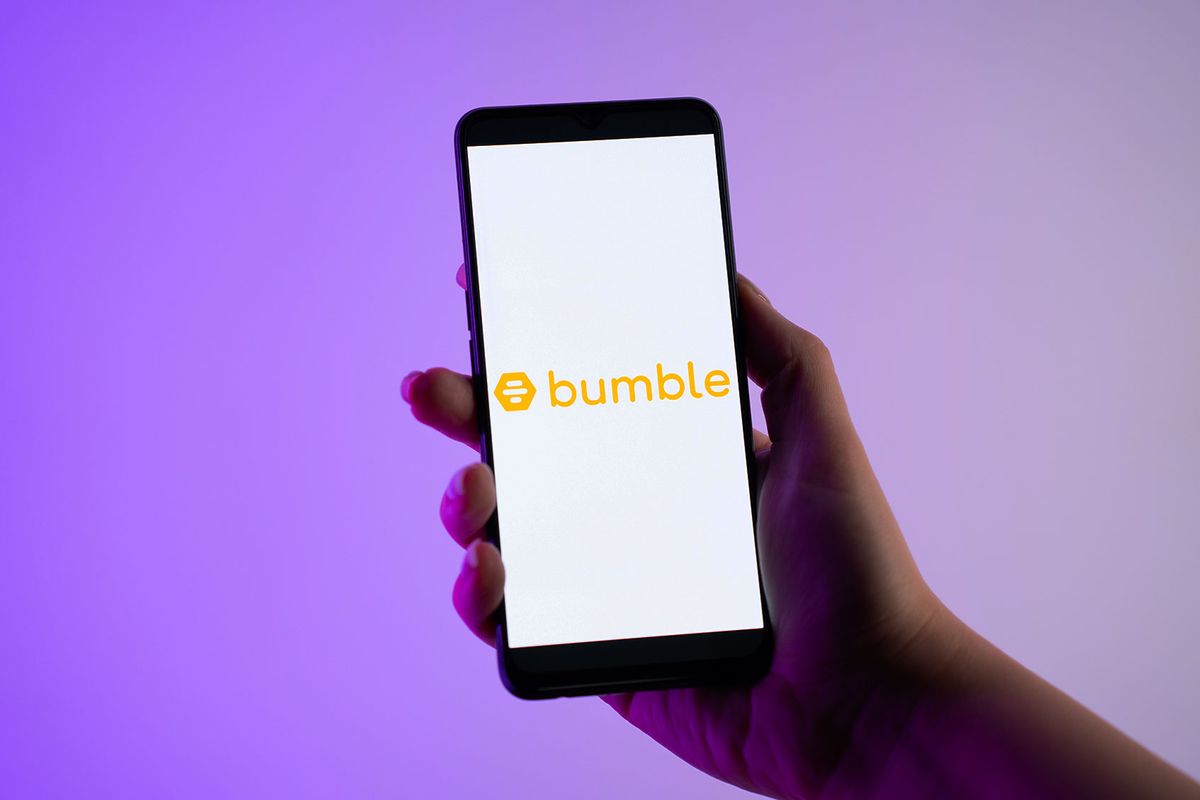Bumble differentiates itself from most dating apps by having women make the first move. The woman-owned business prides itself on empowering women to initiate the first conversation with a match. This would potentially cut down on the numerous unsolicited messages from unwanted suitors.
In an attempt to rebrand the app and engage its users as Gen Z moves away from dating apps to pursue real-life romantic connections, Bumble launched a marketing campaign to introduce a new feature. With new CEO Lidiane Jones at the helm of the app, it recruited the likes of actor Barry Keoghan to lure in the internet obsessed-"Saltburn" crowd. The app has even done away with its initial model that "women make the first move" which opens doors for men to start conversations too. Jones told CNN that the new "opening moves" feature allows Bumble to evolve while staying true to the app's original messaging.
This new feature's rollout has been controversial. The new marketing campaign launched two weeks ago used billboards and other ads that targeted and shamed celibacy, resulting in a strong, negative response from users and women online.
One of the first ads, according to The Cut, was a commercial that showed a woman attempting to "swear off dating" and become a nun. But she abandons her post over a shirtless gardener and the Bumble app. Following the commercial, a string of billboards began popping up globally that used anti-celibacy rhetoric, telling its audience, "You know full well a vow of celibacy is not the answer." Another billboard said, “Thou shalt not give up on dating and become a nun.”
The ads seem to be addressing a growing cultural dating trend where people, mostly young women, are engaging in voluntary celibacy, citing disillusionment with online dating and hookup culture. In return, they have decided to halt dating entirely. Meanwhile, as people reject dating or are unwilling to pay for dating apps, the industry has suffered. The New York Times reported Match Group and Bumble have lost $40 billion in market value since 2021.
Some of the backlash pointed out that equating the use of Bumble to ending celibacy made it feel similar to the hookup culture seen in other apps, once again countering the women's empowerment message. Others pointed out that far more people were celibate for reasons that had nothing to do with not finding the right partner. Additionally, online users said that the ads emphasized the very reasons why their celibacy was important to them. Sharing this sentiment was "Uncut Gems" actress Julia Fox, who commented on a TikTok criticizing Bumble, stating she has “2.5 years of celibacy and never been better tbh.”
Following the immediate backlash, Bumble issued a statement on Monday. Posted to the app's rebranded Instagram, it acknowledged the misstep. "We made a mistake. Our ads referencing celibacy were an attempt to lean into a community frustrated by modern dating, and instead of bringing joy and humor, we unintentionally did the opposite," the statement read.
In the statement, Bumble said it has heard from users and critics. "Some of the perspectives we heard were: from those who shared that celibacy is the only answer when reproductive rights are continuously restricted; from others for whom celibacy is a choice, one that we respect; and from the asexual community, for whom celibacy can have a particular meaning and importance, which should not be diminished. We are also aware that for many, celibacy may be brought on by harm or trauma."
"For years, Bumble has passionately stood up for women and marginalized communities, and their right to fully exercise personal choice. We didn't live up to these values with this campaign and we apologize for the harm it caused," it said.
We need your help to stay independent
In response, Bumble says it is "removing these ads from our global marketing campaign. Bumble will be making a donation to the National Domestic Violence Hotline, among other organizations, as a part of our ongoing efforts to support the work being done around the world to support women, marginalized communities, and those impacted by abuse."
However, people in the comments were not swayed by the apology. One user said, "Why doesn’t your next campaign focus on men changing their bad behavior instead of telling women to lower their standards and boundaries? I’d suggest some females on your marketing team."
Another stated, "Show receipt of donation please."
One other person said, "You didn’t lean into a community, you leaned into the feelings of men. You had no regard for women. You made it a woman’s problem to fix the lack of sex men are having. How about addressing why women are not interested in having a relationship with men? Maybe tell the men to fix themselves instead of the women to give in. Do better."

Shares